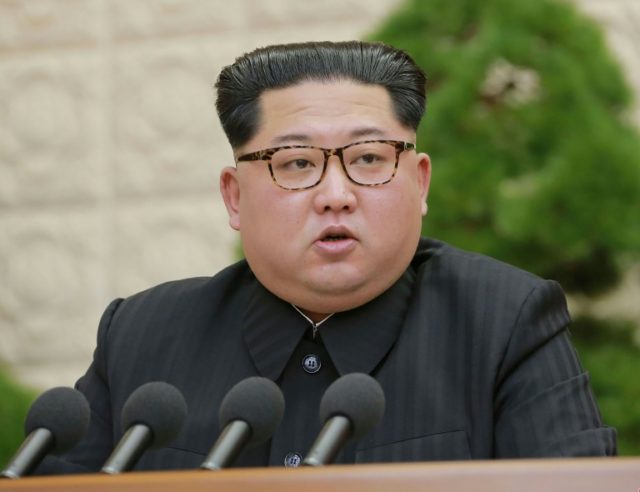The U.S. State Department affirms in its annual International Religious Freedom Report, published Tuesday, that the communist regime controlling North Korea “considered Christianity a serious threat, as it challenged the official cult of personality and provided a platform for social and political organization and interaction outside the government.”
The State Department – citing United Nations reports, NGOs, and media organizations specializing in North Korea coverage – found that Kim Jong-un’s regime regularly employed “arbitrary executions, political prison camps, and torture amounting to crimes against humanity” against anyone suspected of adhering to any faith, but targeted Christians in particular throughout 2017.
Various reports estimated “119 killings and 87 disappearances” based on religious persecution, the report notes. It also cites multiple advocacy groups that have concluded that North Korea hosts a population of up to 400,000 Christians, though it is nearly impossible to confirm those numbers, and that between 10-45 percent of Christians are languishing in the nation’s concentration camps.
A United Nations Commission of Inquiry (COI) found this year that “based on the government’s own figures, the proportion of religious adherents among the population dropped from close to 24 percent in 1950 to 0.016 percent in 2002,” the report notes.
The report also suggested that persecution of individuals suspected of being Christians increased recently, targeting North Korean citizens for “crimes” ranging from being found in possession of religious material to simply loitering near a church too long for police to be comfortable with their presence, or driving by a church too many times.
North Korea does allow a small number of legal churches in Pyongyang, the capital, but defectors and visitors report that they appear largely for show, with no proof that real Christians attend services in them, or that the sermons provided in the few known services to occur offer anything more than Kim cult propaganda. Some defectors said that they knew of the churches as “sightseeing spots for foreigners,” without knowing the true nature of a place of worship.
Nonetheless, defectors have said in interviews that North Korean police are quick to arrest anyone who appears too interested in the areas. “One defector said when he lived in Pyongyang, authorities arrested individuals who they believed lingered too long outside these churches to listen to the music or consistently drove past them around each week when services were being held on suspicion of being secret Christians,” the report notes.
The full International Religious Freedom Report for 2017, is available at the State Department’s website, divided by country. Secretary of State Mike Pompeo held a press conference Tuesday morning announcing the publication of this year’s edition.
The State Department concluded, citing interviews with defectors and NGO reports published throughout 2017, that there existed in the country “an almost complete denial by the government of the right to freedom of thought, conscience, and religion, and in many instances, violations of human rights committed by the government constituted crimes against humanity.”
The report notes that the UN “condemned in the strongest terms the long-standing and ongoing systematic, widespread and gross human rights violations” against religious people in the country. Christians suffered the most systematic persecution, but the report also notes that some Buddhists exist in the country, and that others who may not subscribe to any particular religious engage in shamanic practices.
“Defector reports cited an increase in party members consulting fortune tellers in order to gauge the best time to defect,” the reports noted.
The State Department published the report shortly after President Donald Trump confirmed that the United States was allowing Kim Yong-chol, one of the regime’s top diplomats, to visit New York and meet with American officials to discuss the logistics of planning a summit between Trump and Kim Jong-un. Kim, formerly the head of Pyongyang’s intelligence services, is believed to be responsible for some of the deadliest acts of terrorism in North Korea’s modern history and attacks on U.S. companies, in particular the Sony picture studio following the release of The Interview, a film mocking North Korea, in 2014.
North Korean defectors have pointed to Christianity as a means of helping free the repressed people suffering under the Kim regime. Last week, Thae Yong-ho, one of the highest-ranking North Korean officials to defect to the South, encouraged religious groups to pressure Seoul into demanding that any peace agreement with Pyongyang require the Kim regime to allow South Korean churches to build places of worship nationwide.
“You must insist that North Korea builds churches for both South Koreans and foreigners,” Thae said, addressing South Koreans. “You must convince the North that allowing religious freedom will instill trust. Seeing churches with the crucifix will move North Koreans.”
Follow Frances Martel on Facebook and Twitter.

COMMENTS
Please let us know if you're having issues with commenting.